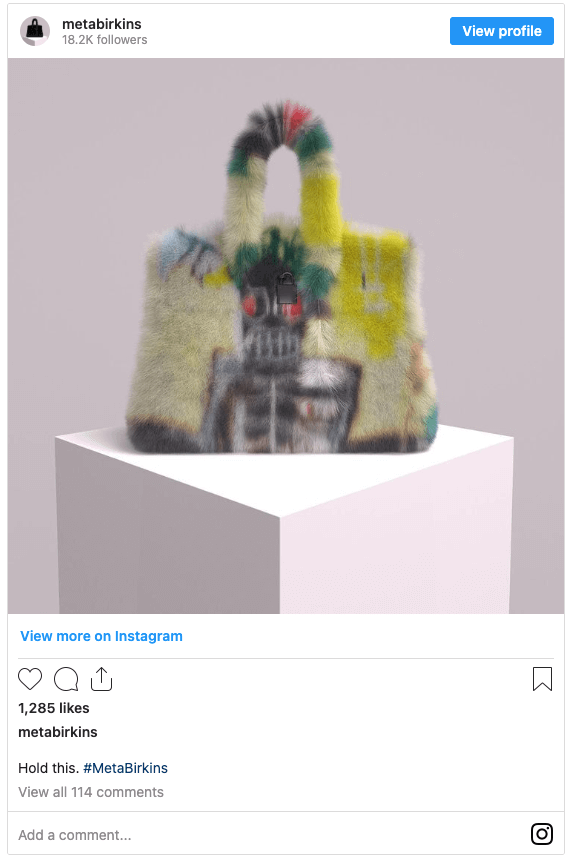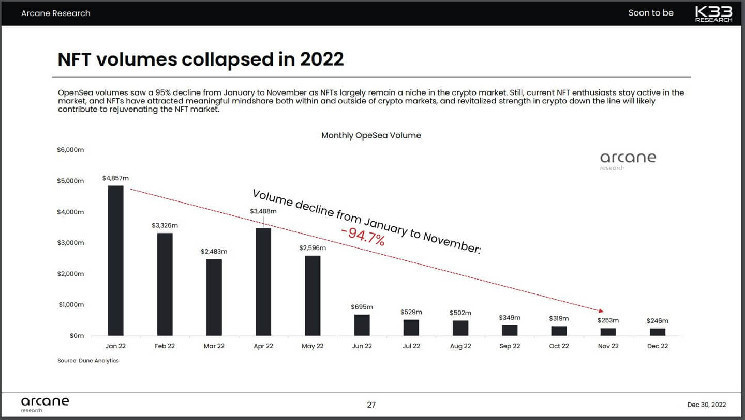Luxury brand Hermès secured a victory in the first of three landmark $NFT trials slated to commence this year.
Hermès convinced a Manhattan jury today that the digital artist behind the “MetaBirkin” non-fungible token collection, Mason Rothschild, violated Hermès’ rights to the “Birkin” trademark.
The nine-member jury came to the verdict on Feb. 8, awarding Hermès $133,000 in total damages, crushing Rothschild’s hopes that his NFTs would be protected as free speech.

Hermès argued in their suit, filed last January, that Rothschild had unfairly sold the MetaBirkin bags as NFTs, netting him more than 55 Ethereum in profits. They argued that this caused irreparable harm to Hermes’ brand after it had found numerous media outlets had incorrectly attributed the project to the official Birkin manufacturer.
“If we want to bring our bag into this virtual world, there will always be a reference to the MetaBirkins,” Hermès’ general counsel Nicolas Martin told the jury during testimony.
However, legal analysts say Rothschild’s case was dealt a devastating blow when, on the opening day of the trial, US District Judge Jed S. Rakoff ruled that a key expert witness supporting Rothschild, a well-known New York art critic named Blake Gopnik, could not testify before the jury.
Gopnik had previously written a biography about Andy Warhol, whose concept of “business art” was used to describe how Warhol painted various everyday items, such as Campbell’s soup cans, imbuing them with new meaning through the act of creation.
But it was never meant to be, with the judge ruling that Gopnik would not be permitted to testify, severely hampering Rothschild’s defense.
During the trial, Rothschild’s lawyers repeatedly clashed with one of Hermes’ expert witnesses, who conducted a survey on behalf of Hermes to determine a “net confusion rate of 18.7%” among potential MetaBirkin $NFT buyers. It is unclear what methodology the expert used, but Rothschild’s lawyers countered with a lower figure, tallying the net confusion rate as somewhere closer to 9.3%, per Bloomberg Law.
Nevertheless, it seemed Rothschild had an uphill battle throughout the trial, with several pieces of evidence entered into the trial by Hermes that proved damaging.
“It is perfectly legal for artists to make money from their art,” Rothschild’s attorney Rhett Millsaps said during opening arguments, but “the First Amendment limits trademark rights,” he argued.
The jury did not agree.
Hermes’ lawyers pointed to text messages Rothschild sent about the MetaBirkins, noting how he wanted to “create the same exclusivity and demand for the famous handbag,” using words like “pump” and “shill” to seek entry from “whales.”
“We’re sitting on a goldmine,” Rothschild said in one text promoting the project to a potential buyer.
Attorneys from Rothschild, represented by the intellectual property law experts at Lex Lumina PLLC, cited the well-established “Rogers” legal test. Originating from the 1989 ruling in Rogers v. Grimaldi, the standard permits artists to utilize a trademark without consent as long as it satisfies a basic level of artistic significance and does not deceive consumers, a tactic that ultimately failed to convince the jury.
However, legal experts were quick to point out that the verdict does not establish a precedent for similar cases going forward, such as the Ryder Ripps v. Yuga Labs case.
According to University of Kentucky law professor Brian Frye, “it’s important to remember that this is just a jury verdict in a district court case, so it only decides this dispute and is not actually precedential for future disputes.”
Frye also noted that the US Supreme Court would hear a similar trademark issue this term, “I suspect SCOTUS will take a more First Amendment friendly position there,” he said.
 cryptoslate.com
cryptoslate.com
